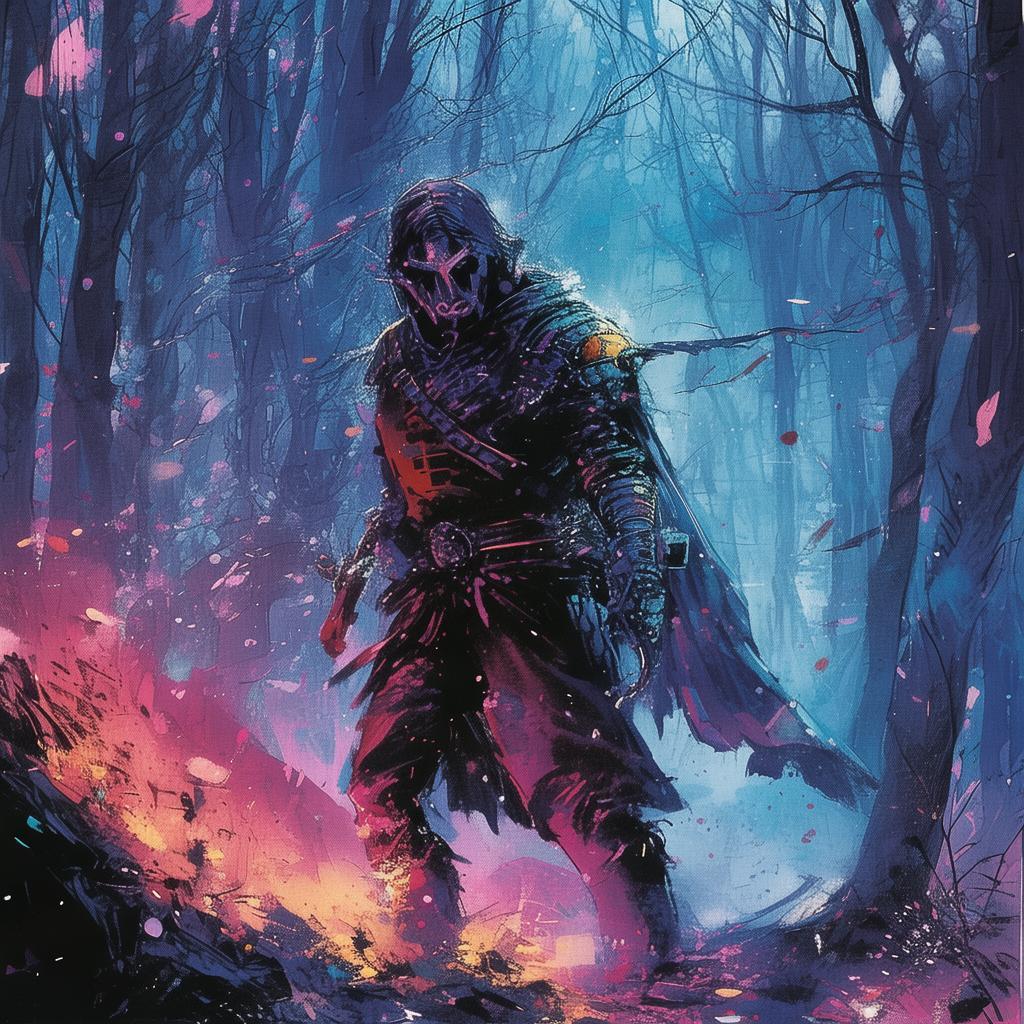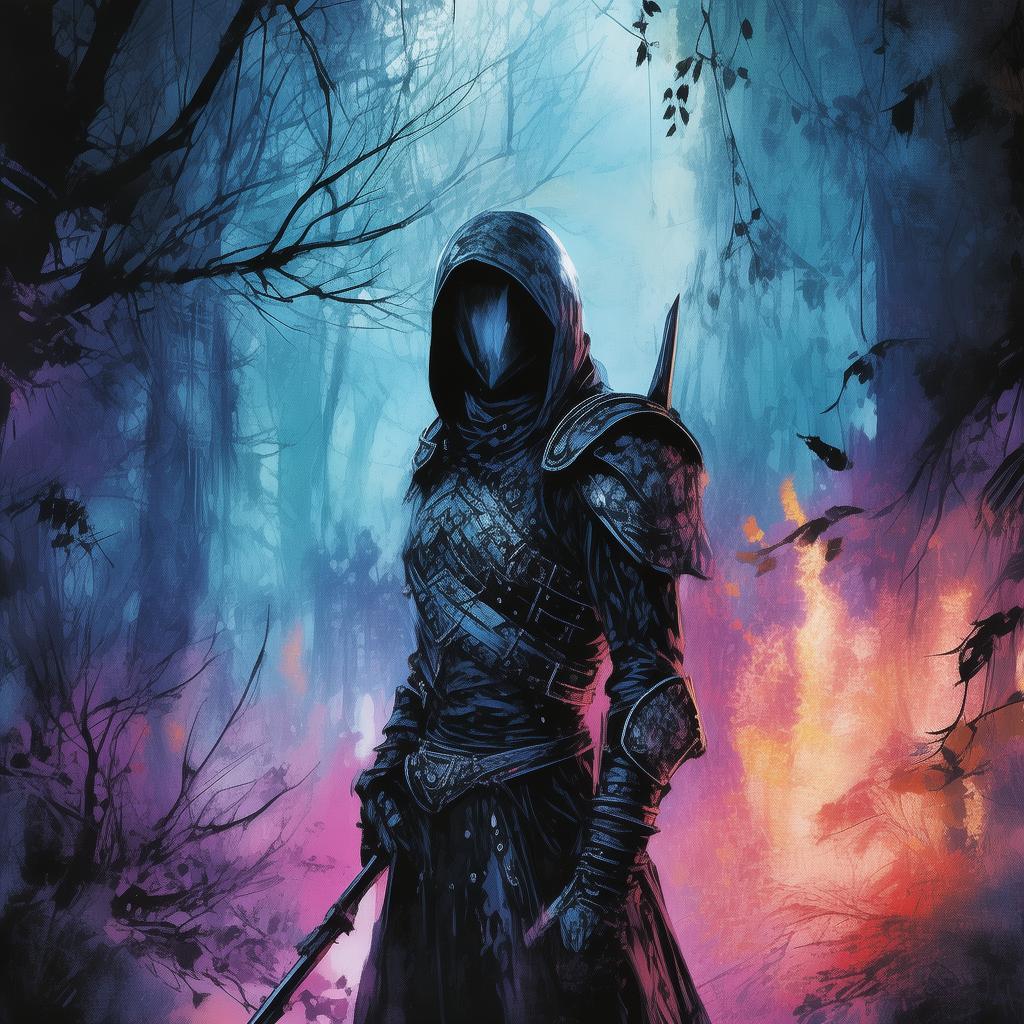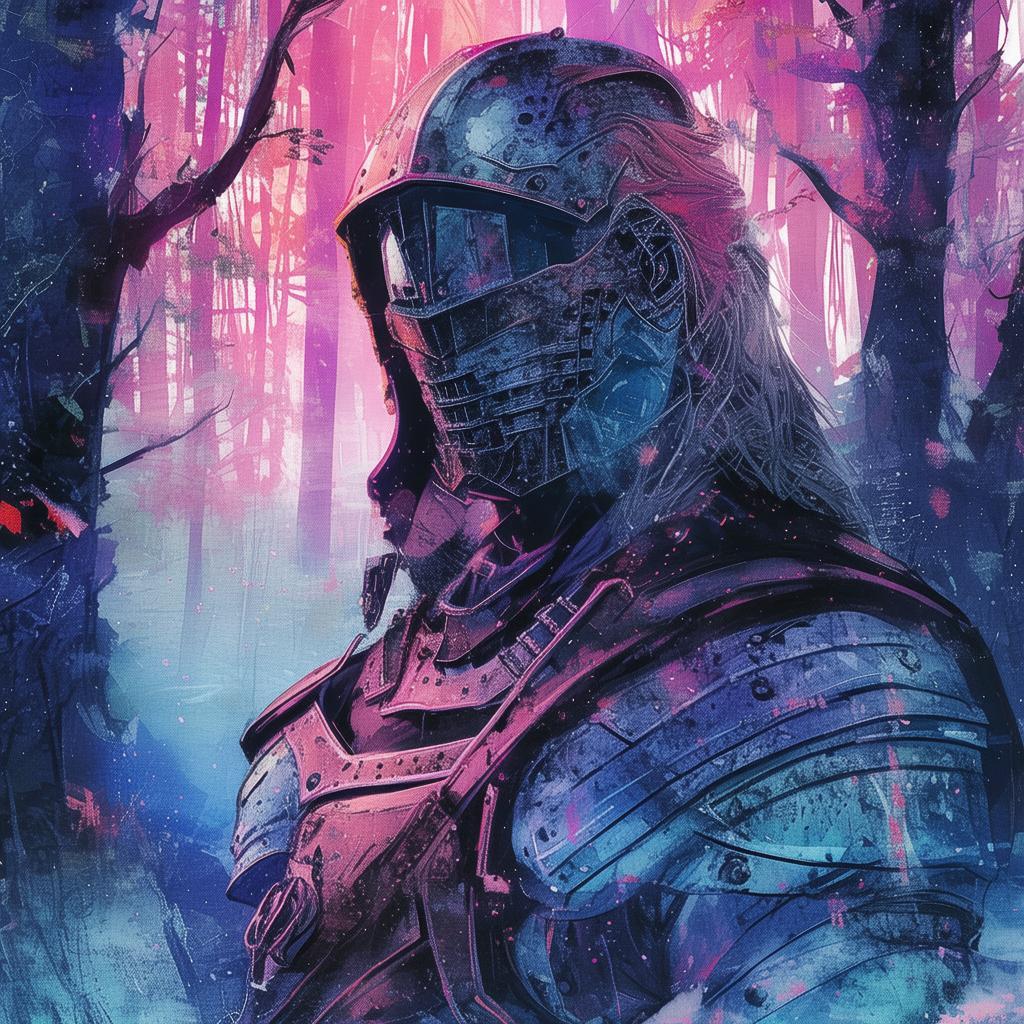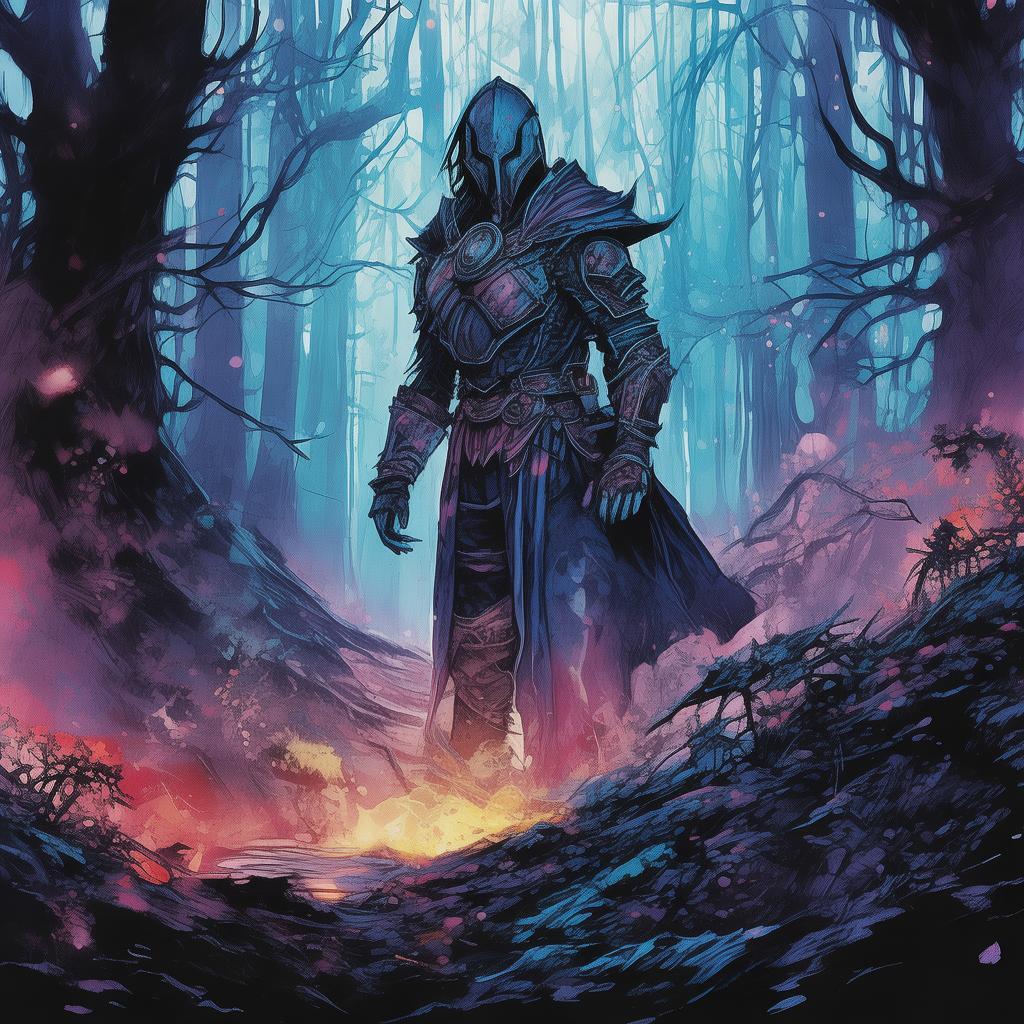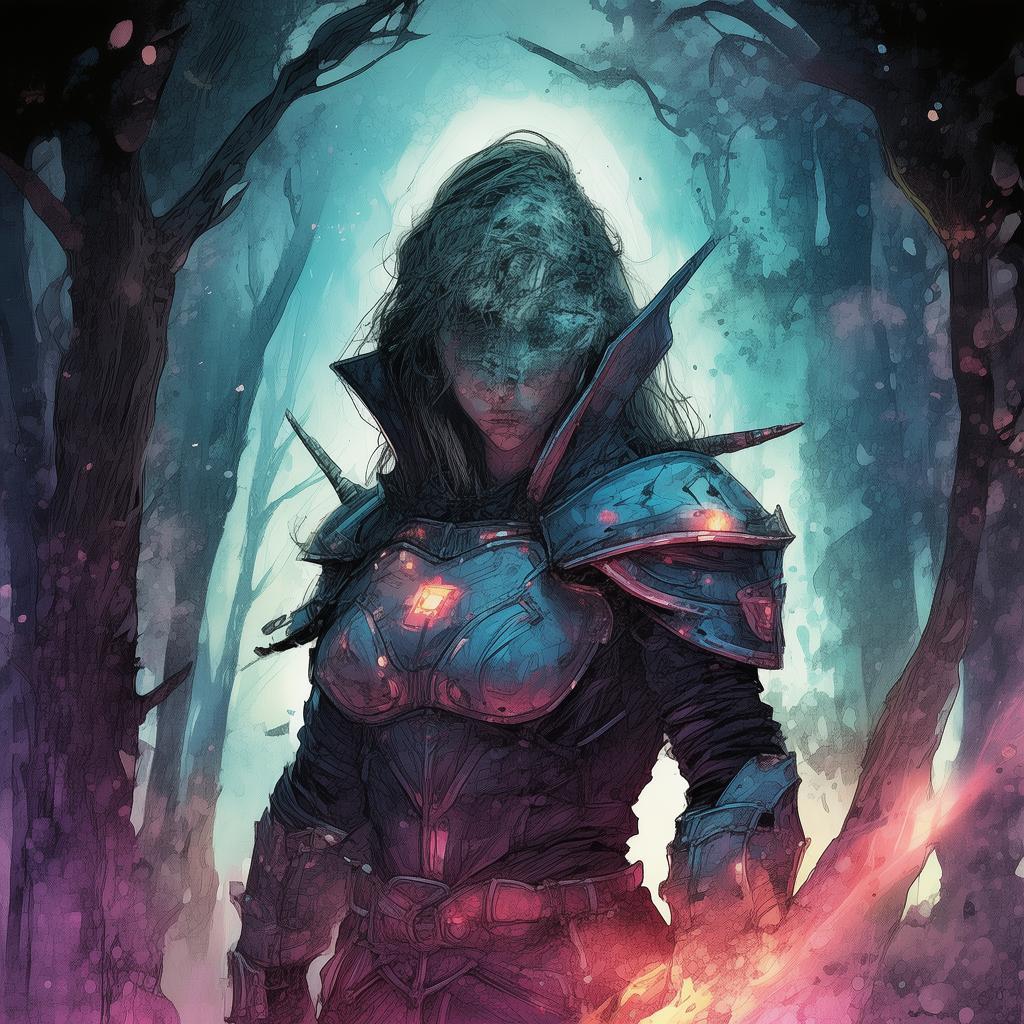The Knight's Lament: A Tale of Honor and Irony
In the heart of the verdant kingdom of Eldoria, where the trees whispered tales of yore and the rivers sang of ancient battles, there stood a castle that was more than just stone and mortar—it was a living testament to the codes of chivalry and honor that once ruled the land. Within its walls, Sir Cedric of the Silver Hand, a knight of legend, had spent his days honing his sword and his nights dreaming of the grand tales of valor and chivalry that would be told of him in hushed tones across the kingdom.
The knight was a man of many contradictions. His laugh was as hearty as the bellows of a forge, and his stories were so filled with wit and humor that even the darkest of tales would find a silver lining. It was said that no matter how dire the situation, Cedric could find a reason to laugh, a jest to tell, or a pun to play on. But beneath this lighthearted exterior lay a heart heavy with the weight of his own honor, a weight that seemed to grow heavier with each passing day.
One fateful evening, as the sun dipped below the horizon and painted the sky in hues of orange and purple, Sir Cedric was called upon to defend his king against a treacherous plot. The traitor, Lord Malakar, had conspired with the neighboring kingdom of Drakon to betray the king, and it was up to Cedric and his fellow knights to thwart the plot and save the kingdom.
As the night grew dark, the knights set out, their hearts heavy with the gravity of their mission. They traveled through the woods, dodging the shadows that danced in the moonlight, their senses heightened by the weight of their duty. Along the way, Cedric's sense of humor was as sharp as his blade, and he managed to keep the spirits of his companions high, even as they approached the treacherous lair of the traitor.
But as they entered the lair, the knight's laughter died in his throat. Lord Malakar, his face contorted with malice, revealed his plan: to betray the king, not just to seize power, but to bring about the downfall of Eldoria. The betrayal was as stunning as it was unforgivable. Sir Cedric, the man who could find humor in any situation, found himself facing the gravest of consequences.
In the heat of battle, as the knights fought valiantly to protect their king, Sir Cedric found himself cornered by Lord Malakar. The traitor's blade descended, and in that moment, Cedric knew his life was as good as over. As the point of the sword neared his heart, the knight's face, usually so full of mirth, was filled with a profound sadness.
But as the blade pierced his chest, a twist of fate occurred. In a desperate bid for survival, Sir Cedric managed to throw Lord Malakar off-balance. The traitor fell, his blade embedded in the floor, and the knight found himself standing, a look of disbelief on his face. It was then that he realized the irony of his situation: he had lived his life as a knight of honor, only to be betrayed by the very man he had sworn to protect.
In that moment, Sir Cedric found a new lease on life, not through triumph or victory, but through a newfound understanding of the true nature of honor and betrayal. He had been a knight who could find humor in the darkest of times, but now he understood that the greatest humor was often found in the irony of life itself.
As the sun rose the next morning, Sir Cedric stood tall, his body weakened but his spirit unbroken. He addressed his fellow knights and the king, not with the laughter that had become his trademark, but with a newfound wisdom and a heavy heart.

"I have been a knight of humor, but today, I have learned that the true humor of life is found in its irony," he said, his voice steady but tinged with sadness. "I have been betrayed, but I have also been given a second chance to understand the true meaning of honor."
And with that, Sir Cedric set out to serve his king not just as a knight of the sword, but as a knight of the heart, forever changed by the irony of his own betrayal and the wisdom it had brought him.
In the end, the tale of Sir Cedric of the Silver Hand became a legend, not just for his valor in battle or his wit in the telling of tales, but for the profound irony of his life—how a knight of humor had found his greatest humor in the irony of his own betrayal, and how that betrayal had led him to a deeper understanding of honor and life itself.
✨ Original Statement ✨
All articles published on this website (including but not limited to text, images, videos, and other content) are original or authorized for reposting and are protected by relevant laws. Without the explicit written permission of this website, no individual or organization may copy, modify, repost, or use the content for commercial purposes.
If you need to quote or cooperate, please contact this site for authorization. We reserve the right to pursue legal responsibility for any unauthorized use.
Hereby declared.


